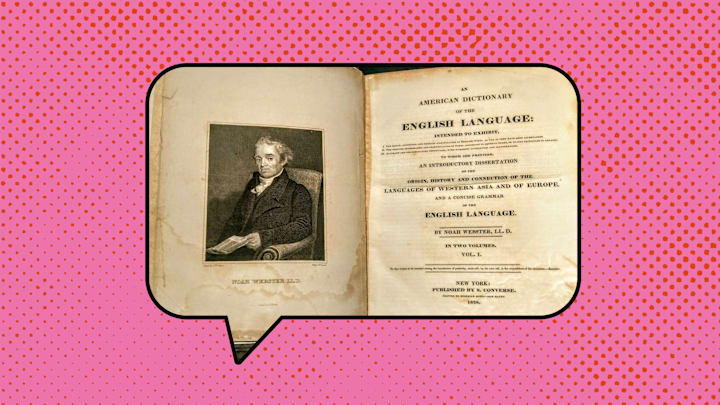Noah Webster had a lasting impact on language in the United States. Before publishing his An American Dictionary of the English Language, he produced a series of spelling books that dominated American classrooms for almost a century. He was a proponent of spelling reform, believing that more regular orthography would not only make learning easier, but more importantly, it would distinguish the American way from the British, “an object of vast political consequence” to a young nation. Some of his suggested reforms caught on and still mark a difference between American and British writing: He replaced “colour” with “color,” “centre” with “center,” “defence” with “defense,” “plough” with “plow,” “draught” with “draft,” and “gaol” with “jail.”
But many of Webster’s reforms went nowhere—including the 26 spellings listed here.
- Cloke: Cloak
- Soop: Soup
- Masheen: Machine
- Tung: Tongue
- Greef: Grief
- Dawter: Daughter
- Korus: Chorus
- Nightmar: Nightmare
- Turnep: Turnip
- Iland: Island
- Porpess: Porpoise
- Steddy: Steady
- Hainous: Heinous
- Thum: Thumb
- Gillotin: Guillotine
- Spunge: Sponge
- Ake: Ache
- Wimmin: Women
- Determin: Determine
- Giv: Give
- Bilt: Built
- Beleev: Believe
- Grotesk: Grotesque
- Stile: Style
- Neer: Near
- Sley: Sleigh
A version of this article ran in 2013; it has been updated for 2022.
